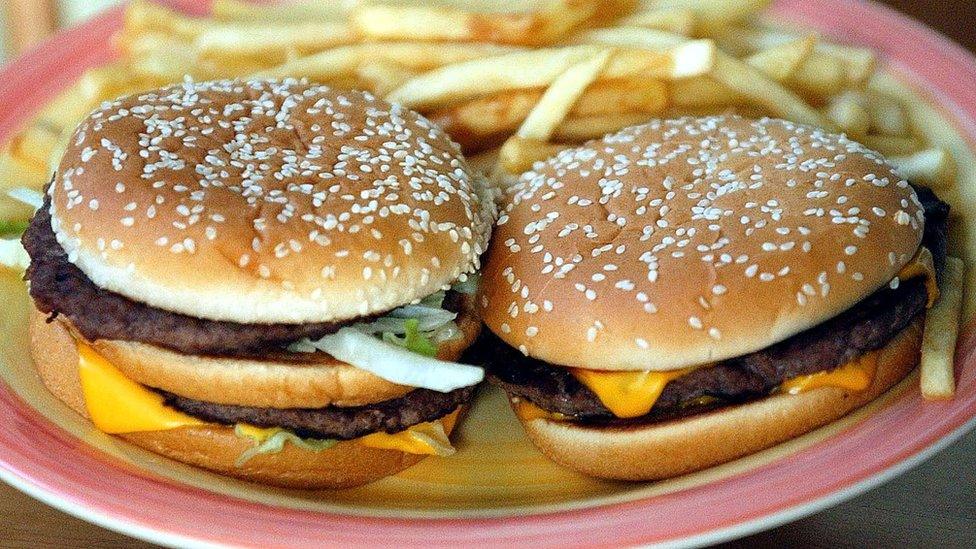City planning junk food advertising ban

Liverpool City Council is considering the ban in a bid to tackle obesity
- Published
A council is considering banning junk food adverts on its billboards across Liverpool in a bid to tackle rising obesity levels.
Liverpool City Council is looking at banning advertisements and sponsorship involving products high in fat and sugar from anything it owns.
The plans come as the city faces "significant challenges" dealing with ill-health in the population, the Local Democracy Reporting Service said.
Obesity is expected to be the second biggest issue affecting health of children and young people in the city by 2040, council bosses have warned.
A council report has warned of the need for "major intervention" to prevent the burden of ill health by this predicted rise in obesity levels.
Currently, 63% of adults in Liverpool are overweight or obese, and one in four children are starting school overweight or obese, the report said.
This progresses to one in three children age 11 (year 6) being overweight or obese.
The state of the city report released by the council in January warned of the stark health issues across Liverpool in the next 15 years.
Obesity problems mirrored deprivation, with evidence that people in deprived communities were more likely to choose unhealthy food and drink products, the report added.
The move comes just five months after Sefton Council voted to ban junk food ads on its billboards.
Liverpool City Council's proposed new policy would introduce additional restrictions on the advertising of products high in fat, salt and sugar (HFSS).
The proposals would be adopted immediately, should the council’s cabinet give them the green light.
A report to the cabinet ahead of its meeting on Tuesday said: "Liverpool faces significant challenges in relation to the health of its residents."
It said the policy sought to strike an appropriate balance of restricting inappropriate content and avoiding conflicts of interest while maximising the commercial, social and reputational benefits that advertising, and sponsorship could bring.
Restrictions on HFSS products were added to the existing policy as a result of evidence showing a "clear association" between exposure to harmful products, advertising and dietary habits, the council said.
Related topics
- Published7 April 2024
